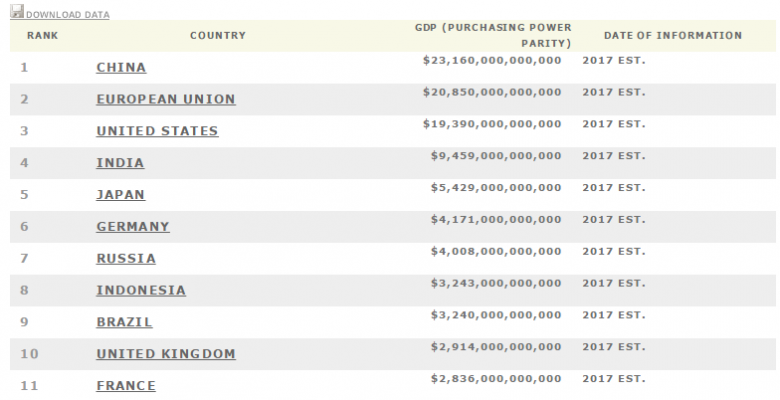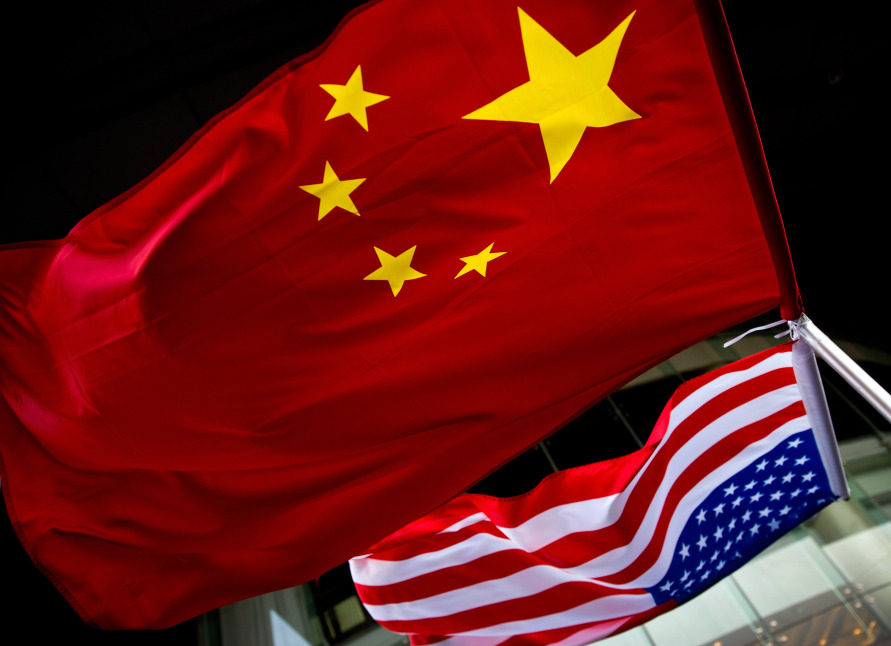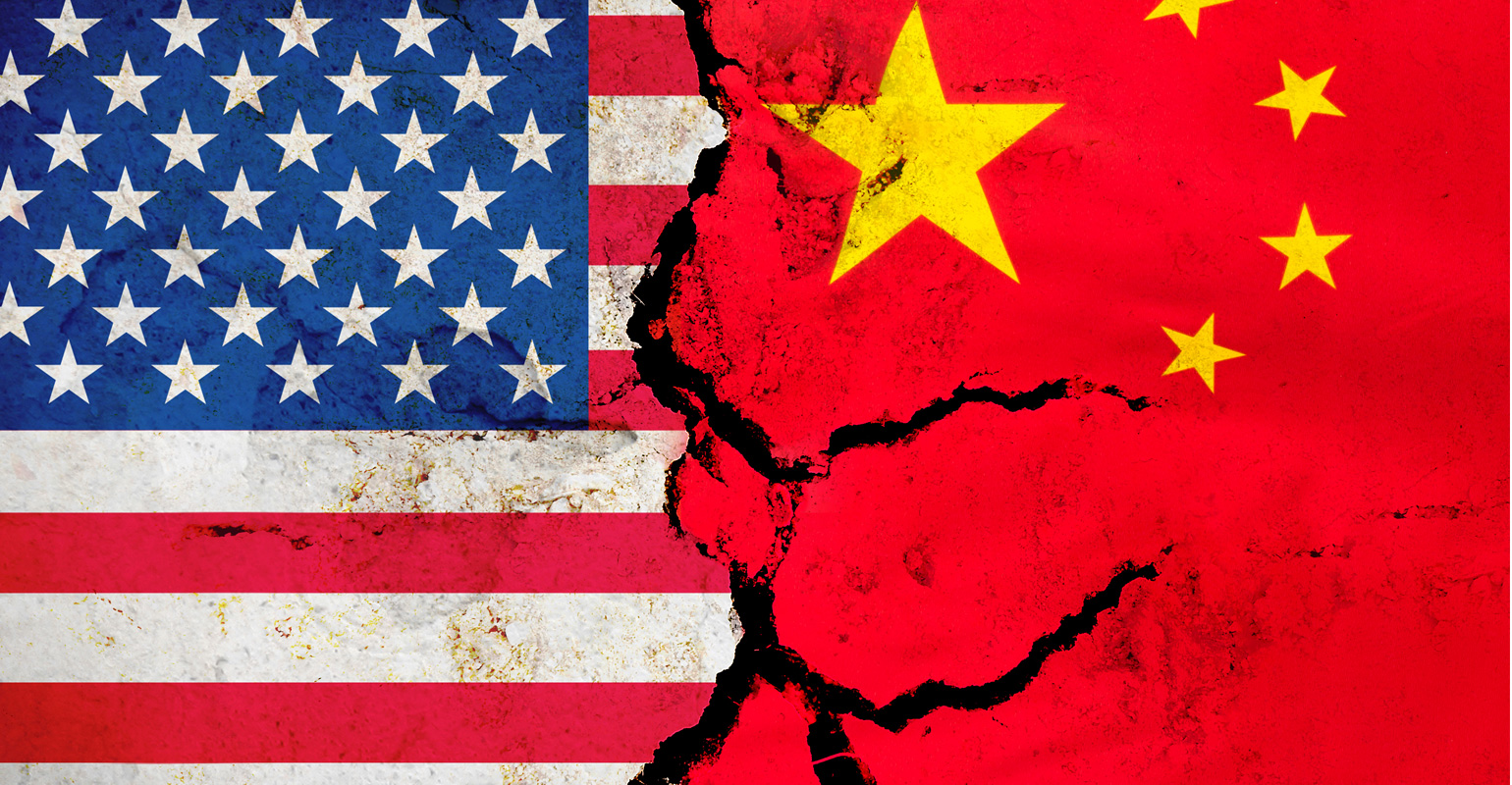
[Superpowers]
PPP: China already taking over USA in 2016
GDP: When will China take over USA in GDP, 2030?

One thing strange is that majority of the Chinese people themselves don’t think China will overtake USA in short time.
But according to GDP (PPP) data, if China keeps current economy growth rate of 8% per year, it is possible that China will become the largest economy before 2018.
WASHINGTON (AP) — The United States is still viewed as the world’s leading economic power in many countries, according to polls in 39 nations by the Pew Research Center’s Global Attitudes Project. But as the Great Recession has buffeted the U.S. economy, China has gained rapidly in the eyes of the rest of the world, and many say it ultimately will replace America as the world’s top global economic force.
In 22 of the 39 nations polled, the U.S. is seen as the top global economy, while China is viewed as having the upper hand in eight countries, including U.S. allies Canada, Britain, Germany and France. Surprisingly, Americans are about evenly divided over which country has the stronger economy, with 44 percent saying China and 39 percent the United States.
Since 2008, the population share that calls China the world’s top economy has just about doubled in Spain, Germany and Britain, nearly tripled in Russia, and gained 22 points in France. Of the 20 countries Pew surveyed in both 2008 and 2013, all but two are now significantly more likely to say China is the world’s leading economic power.
In 18 of the countries polled, half or more believe China has or will replace the U.S. as the world’s top economic force, while majorities in only three believe the U.S. will maintain its top economic position.
The surveys, conducted before news about the NSA’s surveillance programs broke, also found that 37 of the 39 countries saw the U.S. as a good steward of individual liberty than a poor one.
Before leaks of classified documents revealed widespread U.S. tracking of Internet communications among people in other countries, many said they were confident President Barack Obama would do the right thing in world affairs, including 88 percent in Germany and 83 percent in France, two allies whose official reactions to the spying program have been broadly negative. Few in those nations think the U.S. gives their countries’ concerns much weight when setting foreign policy; just 35 percent in France and half in Germany say America considers their interests at least “a fair amount.”
Other findings from the surveys:
— The U.S. is viewed favorably by a majority in 28 of the 38 other nations tracked in the poll, with favorability ratings above 80 percent in Ghana, Senegal and Kenya in Africa, Israel in the Middle East and the Philippines in Asia. America fares worst in the Middle East, where most have an unfavorable opinion in five of seven nations surveyed, including 81 percent with a negative view in Egypt and 70 percent unfavorable in Turkey.
— Among those in nations that receive U.S. economic aid, Egyptians and Pakistanis are more apt to say the assistance is having a negative impact on their country, while other African nations surveyed view such assistance as a positive influence.
— Majorities in just three of the 39 countries say they approve of the U.S. use of drones to target extremists: Israel (64 percent approve), the United States (61 percent approve) and Kenya (56 percent approve).
— More than 9 in 10 in Japan (96 percent) and South Korea (91 percent) say that China’s growing military power is a bad thing.
The Pew Research Center interviewed 37,653 respondents in 39 countries from March 2 through May 1, 2013. Interviews were conducted face-to-face or by telephone, depending on the country, and are representative of at least 95 percent of the adult population of each nation except for China and Pakistan, where the samples were disproportionately urban, Argentina, Bolivia, Greece, Indonesia and Malaysia, where some difficult to reach or rural populations were excluded, and the Czech Republic and Japan, where interviews were conducted either by cellular or landline telephone only.

俄媒:中国经济规模无论怎么算都大于美 优势还在扩大

俄专家认为中国将在中美竞争中占据优势
报道称,尼科诺夫在会议上指出:“美国现在能做的比以前少。在冷战初期,美国经济占世界经济的60%,现在却只占世界经济的15%,(相比之下)中国的经济规模‘无论怎么算都要大于美国’。如果说2014年是中国经济购买力平价超越美国,那么现在中国和美国之间的差距则在迅速拉大。”
尼科诺夫强调,如今美国的不利地位是他们的外交政策失误所造成的,因为美方同时将中俄两国称作对手,等于是把这两个国家“弄到了同一条船上”。“美国把俄罗斯确定为自己的对手,让中俄相互靠拢彼此成为必然,”他强调,“现在没有任何俄罗斯和美国相互靠拢的迹象,也没有任何俄罗斯和中国出现分歧的迹象。”
https://mil.news.sina.com.cn/china/2020-10-24/doc-iiznezxr7795114.shtml
Published 7 hours ago on October 18, 2020By EurAsian Times Desk
IMF Admits China Has Overtaken The US As The World’s Largest Economy; But Why Is The Media Silent?
The world is waking up to a new reality post the devastating pandemic that brought everything to a grinding halt. One of them is the rise of China as the undisputed new economic superpower.
According to the IMF’s World Economic Output 2020 released recently, China has now overtaken the US to become the world’s largest economy.
https://eurasiantimes.com/imf-admits-china-has-long-overtaken-the-us-as-the-worlds-largest-economy-but-why-is-the-media-silent/
美国霸权主义何时才可能停止?中国著名经济学家林毅夫认为,当中国人均国内生产总值(GDP)达到美国的一半时,大概在2050年。
8月19日,在北京大学经济学院思政实践课无极县教育基地揭牌仪式上,北京大学新结构经济学研究院院长林毅夫发表了题为《新冠肺炎(COVID-19)疫情与中美摩擦双重背景下的中国经济发展》的报告。
林毅夫认为,当中国人均GDP达到美国的一半时,美国的霸权主义可能才会停止。中国人口是美国的四倍,中国人均GDP达到美国的一半意味着中国经济规模是美国的两倍。
林毅夫认为,这一时间节点大概是在中国第二个百年目标实现时,即2050年。
此外,林毅夫还表示,中国经济如果实现5.3%的增速,有望实现两个翻一番目标。展望中国经济发展前景,林毅夫表示,未来中国仍具有8%的增长潜力。
 ?auto=format&fit=crop&h=432&w=768
?auto=format&fit=crop&h=432&w=768
林毅夫表示,疫情总会过去,对中国影响更长远的因素是中美摩擦。贸易逆差的问题只是一个借口,美国是为了抑制中国的发展。中国在世界上的影响力越来越大,美国为了维持全球话语权,开始给中国制造麻烦。
面对美国全方位施压,中国应该怎么办?林毅夫表示,最重要的是保持定力,继续利用好自己的发展空间和潜力,继续深化改革开放,这样的发展不仅有利于中国,而且有利于世界。
林毅夫认为,中国还有8%的增长潜力,经济增长靠的是劳动力生产率水平不断提高,一种方式是靠技术的提高,另一种方式要靠产业升级。
林毅夫认为,当中国人均GDP达到美国的一半时,美国的霸权主义可能才会停止。中国人口是美国的四倍,中国人均GDP达到美国的一半意味着中国经济规模是美国的两倍。
并且,中国国内有地区差异,有3.5亿人口的京津冀、东南沿海、中西部的重要城市,人均GDP将会与美国相当,代表这些城市的产业技术达到与美国相同的水平,美国的技术优势消失;另外10亿中国人口的人均GDP约为美国的1/3,这部分地区发展速度会更快。这一时间节点大概是在中国第二个百年目标实现时,即2050年。
要实现这一目标,中国经济只需要2030年前保持5%到6%的增长,2030年到2040年实现4%到5%的增长,2040年到2050年实现3%到4%的增长,中国完全有可能实现。
Somebody:
The competition (if it is / was) seems definite for the coming years. China is ahead of the USA on most fronts. Most Fortune 500 companies, most billionaires, best technology in more and more areas.
BUT:
:strip_exif()/i/2003782236.jpeg)
Chips & Aerospace engines, that’s the TWO hardcore problems of China now.
韩国《中央日报》6月1日在题为《萨德噩梦重现?美中霸权之争正式拉开序幕》的文章中指出,中美矛盾本质上属于两国争夺经济、军事、制度等各领域领导力的霸权之争。如果中国经济继续保持当前的增长速度,预计到2030年,中国的经济总量就会超过美国,成为世界第一。
文章指出,从奥巴马(Barack Obama)政府时期,美国就开始担心中国的继续增长会对美国的霸权造成威胁。美国通过”亚洲再平衡战略”制约中国,并有意使中国在美国主导的国际社会中发挥负责任角色,将中国束缚在”建立在规则基础上的秩序”框架之中。
川普(Donald Trump)政府上台后对奥巴马政府的战略进行极力批判,奉行从霸权层面遏制中国的战略。川普政府表示,奥巴马政府尝试利用和平介入给中国套上缰绳的方法已经失败,现在必须”联合盟友一起,使中国停止下来”。
美国民众对华的反感情绪也在不断高涨。”Pew Research”民调公司自2005年开始调查美国民众的对华认识以来,美国国民对中国的”反感”比例在今年3月份的民调中达到66%,创下最高纪录。
文章称,这意味着,美国政治圈、学术界、专家集团、普通民众对待中国的感情趋向完全相同,因此即便在下届美国政府上台之后,预计美中对立的局面仍将长期持续,这种对立可能会持续整整一代人的时间,可能持续30年乃至更久。
文章指出,当前的中美战争已经进入无法轻易判断胜负的阶段。虽然从中美权力的分布来看,中国在综合国力上仍然处于劣势,但美国也并未占据压倒性优势。中国是世界最大的市场、生产基地和外汇储备国,拥有高涨的教育热情和尖端的技术力量。包括韩国在内的世界大部分国家在经济上都与中国保持着深度互相依赖的关系。


回望70年前,中国还是一个比较贫穷落后的国家;但如今,中国已经成为全球最大的制造业大国、第一大贸易国和第二大经济体,中国的经济产出占全世界的1/6左右,对世界经济增长的贡献率在30%以上。中国经济数十年发展的经验告诉我们,中国对世界各国的重要性已经超过了世界上绝大多数国家,也意味着这次跟之前没有什么不同——任何困难都难不倒英雄的中国人民。
https://k.sina.com.cn/article_2622472937_9c4fc2e9001016pbl.html
http://statisticstimes.com/economy/projected-world-gdp-ranking.php
当初讲美国超越英国成为世界第一大经济体,也是讲两个时间节点,一是1872年购买力平价GDP超越英国,二是1894年名义GDP超越英国,但这两者都不是人均GDP,那时美国的人均GDP,仍然不及英国。
http://statisticstimes.com/economy/countries-by-projected-gdp-capita.php
No more a real poor country
https://www.imf.org/external/datamapper/NGDPDPC@WEO/OEMDC/ADVEC/WEOWORLD
在这张图上我们可以清楚地看到,一开始,美国媒体最关心的国家是当时还强大的英国,1915年之后就变成了德国,随后是俄国、日本等等。
一直到2008年之后,中国开始逐渐霸屏,出现的频率越来越高。
List of countries by largest historical GDP
https://en.wikipedia.org/wiki/List_of_countries_by_largest_historical_GDP
China will reshape even the world auto industry
CIA FACTBOOK
https://www.cia.gov/library/publications/the-world-factbook/rankorder/2001rank.html#ch
https://www.cia.gov/library/publications/the-world-factbook/rankorder/2001rank.html#ch
China
This is why USA is still the super power
http://www.backchina.com/news/2017/01/04/468539.html
China Will Replace U.S. as Global Superpower, Says the World
http://www.usnews.com/news/blogs/data-mine/2015/06/30/china-will-replace-us-as-global-superpower-says-the-world
清华大学院长:2023年中国必成超级大国
2013-11-11 21:48:27 明镜月刊
而清华大学知名教授阎学通:中国到2023年会成为超级大国,世界将形成中美两极格局。
他在新书《历史的惯性》一书中预测:未来十年,人民币兑美元汇率将升至1:5;2023年美国的GDP将为19万亿美元,届时中国的GDP按照当前的汇率换算将为17万亿美元,按届时的汇率计算将超过美国;2023年人民币对其他货币的影响力将达到美元影响力的50%甚至更高水平,人民币、美元和欧元可能构成三足鼎立之势;2023年,中国将拥有载人的太空工作站、至少3个服役的航母舰队(有可能建成5艘航母)、4~5艘携带射程8,000千米导弹的战略核潜艇、部署部队的第五代战斗机(歼-20和歼-31)。一言以蔽之,中国将会在2023年成为超级大国,世界将迎来中美两极格局。
阎学通指出,中国与其他大国的关系可以分为不同等级:友好关系是中俄关系;普通关系中有中德关系、中法关系、中印关系、中英关系;新型大国关系是中美关系;对抗关系是中日关系。
[img [/img]
[/img]
China Set to Overtake U.S. as Biggest Economy by 2016 According to the Organization for Economic Cooperation and Development (OECD), by 2016 China will replace the United States as the world’s biggest economy. Although China’s economy slowed to 7.8 percent growth last year, which was the lowest rate in ten years, this year the growth rate should be 8.5 percent and next year 8.9 percent. The OECD stated, “There is significant scope for further catch-up in China; China has a strong record with respect to several of the key factors for sustaining growth and is well positioned to emulate the… Read more »